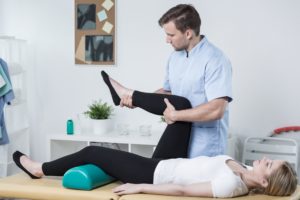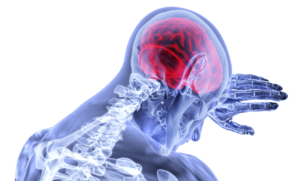Traveling by vehicle is something so common that we take it for granted. Most people use a car many times a day, traveling miles and miles going about their lives. Automobile accidents can happen to anyone. When accidents happen, injuries to soft tissue, bones, and the head can cause chronic pain. Pain management after a car accident is an important aspect of your recovery process.
Visit a Credible, Qualified Accident Doctor
Not all doctors are created equal. Many family physicians are trained to deal with illnesses and regular injuries. However, an accident doctor will have special training and experience dealing with the specific types of injuries that occur in a car wreck. Having a specialist on your side that understands the nuances of how the body can be damaged during an auto accident can help you identify your injuries sooner, and help relieve any pain you have experienced.
See a Physician as Quickly as Possible Following a Car Accident
When you experience an auto accident, sometimes pain and injury are immediately apparent. Other times, you may not experience any pain. Regardless of whether you feel injured or not, it is still wisest to visit a physician immediately following an auto accident. It is normal for pain to occur hours, days, or even weeks after the original injury.
Additionally, under Florida law, when you are injured in an auto accident, you are eligible for personal injury protection (PIP) which can help you cover the costs of medical appointments, pain medications, physical therapy, and lost wages that are the result of an auto accident. In order to receive these benefits from your insurance company, you must be seen by a qualified physician within 14 days of the original accident. After that time, you can no longer receive reimbursement, even if symptoms of injury begin to appear.
Options for Pain Management After a Car Wreck
Many people experience pain following a car accident. This can happen due to injuries such as soft tissue damage or whiplash. Often one injury can lead to pain and discomfort in other areas of the body. There are many ways to overcome pain from an accident.
- Ice. Icing the affected area can help reduce the swelling and pain of a muscle, ligament, or tendon injury.
- Neck or Back Brace. Wearing a neck or back brace temporarily can be helpful for recovery. However, these muscles need to move in order to heal correctly, so restoring regular movement is important.
- Medication. Anti-inflammatories, muscle relaxants, and painkillers can all help an accident victim recover from their injuries by alleviating the pain and swelling, and allowing the injured areas to heal.
- Chiropractic treatment. Accidents can cause the back or neck to become misaligned. Visiting a qualified chiropractor can help realign your spine and help encourage healing
Physical therapy. During an accident there can be damage to nerves and muscles resulting in limited range of motion and pain. Physical therapy will encourage healing and strengthening the injured area.
Massage therapy. Soft tissue is easily damaged by the force exerted on the body during an auto accident. Damaged muscles can tighten or heal incorrectly, causing additional pain. Massage therapy can help relieve muscle pain and improve blood circulation to the injured tissue.
- Epidural steroid injections. These injections can help alleviate pain and improve recovery by treating inflammation in the back, leg, neck, or arm.
- Radiofrequency ablation (RFA). Patients with chronic pain may benefit from RFA, which uses an electrical current produced by a radio wave to heat up a small area of nerve tissue. This can help reduce the pain signals that form in that particular area for the patient.
Recognizing the Dangers of Medication Overuse
The doctor you visit should be knowledgeable and experienced in accident injuries and effective pain management, more so than simply prescribing pain medication for your recovery. Pain medication, muscle relaxants, and anti-inflammatory medications can all help reduce pain and help the body heal.
However, relying on pain medication for more than a short term fix can be hazardous. Opiate painkillers should always be considered a short term remedy. Using opiate medication multiple times a day for more than a few weeks can cause dependency and addiction. Long term usage of opiates can result in slowed breathing, brain damage, and other serious health concerns.
Your physician should monitor and assist you in finding the right balance of pain management by determining the source of the pain and finding ways to help you heal. While pain-killers can help provide relief in the short term, there are many options available to provide long term pain relief that do not have the dangerous side effects of opiate based medication.




